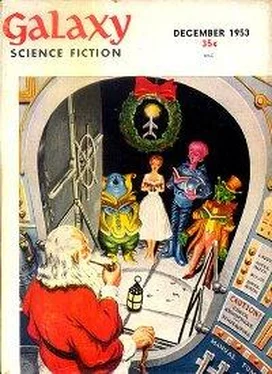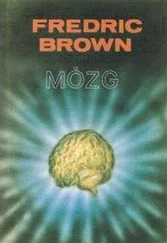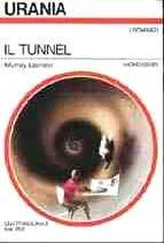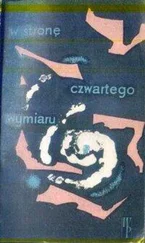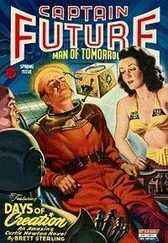Fredric Brown - Hall of Mirrors
Здесь есть возможность читать онлайн «Fredric Brown - Hall of Mirrors» весь текст электронной книги совершенно бесплатно (целиком полную версию без сокращений). В некоторых случаях можно слушать аудио, скачать через торрент в формате fb2 и присутствует краткое содержание. Год выпуска: 1953, Издательство: Galaxy Publishing Corporation, Жанр: Фантастика и фэнтези, на английском языке. Описание произведения, (предисловие) а так же отзывы посетителей доступны на портале библиотеки ЛибКат.
- Название:Hall of Mirrors
- Автор:
- Издательство:Galaxy Publishing Corporation
- Жанр:
- Год:1953
- ISBN:нет данных
- Рейтинг книги:4 / 5. Голосов: 1
-
Избранное:Добавить в избранное
- Отзывы:
-
Ваша оценка:
- 80
- 1
- 2
- 3
- 4
- 5
Hall of Mirrors: краткое содержание, описание и аннотация
Предлагаем к чтению аннотацию, описание, краткое содержание или предисловие (зависит от того, что написал сам автор книги «Hall of Mirrors»). Если вы не нашли необходимую информацию о книге — напишите в комментариях, мы постараемся отыскать её.
Hall of Mirrors — читать онлайн бесплатно полную книгу (весь текст) целиком
Ниже представлен текст книги, разбитый по страницам. Система сохранения места последней прочитанной страницы, позволяет с удобством читать онлайн бесплатно книгу «Hall of Mirrors», без необходимости каждый раз заново искать на чём Вы остановились. Поставьте закладку, и сможете в любой момент перейти на страницу, на которой закончили чтение.
Интервал:
Закладка:
Hall of Mirrors
by Fredric Brown
For an instant you think it is temporary blindness, this sudden dark that comes in the middle of a bright afternoon.
It must be blindness, you think; could the sun that was tanning you have gone out instantaneously, leaving you in utter blackness?
Then the nerves of your body tell you that you are standing, whereas only a second ago you were sitting comfortably, almost reclining, in a canvas chair. In the patio of a friend’s house in Beverly Hills. Talking to Barbara, your fiancee. Looking at Barbara—Barbara in a swimsuit—her skin golden tan in the brilliant sunshine, beautiful.
You wore swimming trunks. Now you do not feel them on you; the slight pressure of the elastic waistband is no longer there against your waist. You touch your hands to your hips. You are naked. And standing.
Whatever has happened to you is more than a change to sudden darkness or to sudden blindness.
You raise your hands gropingly before you. They touch a plain smooth surface, a wall. You spread them apart and each hand reaches a corner. You pivot slowly. A second wall, then a third, then a door. You are in a closet about four feet square.
Your hand finds the knob of the door. It turns and you push the door open.
There is light now. The door has opened to a lighted room … a room that you have never seen before.
It is not large, but it is pleasantly furnished—although the furniture is of a style that is strange to you. Modesty makes you open the door cautiously the rest of the way. But the room is empty of people.
You step into the room, turning to look behind you into the closet, which is now illuminated by light from the room. Thecloset is and is not a closet; it is the size and shape of one, but it contains nothing, not a single hook, no rod for hanging clothes, no shelf. It is an empty, blank-walled, four-by-four foot space.
You close the door to it and stand looking around the room. It is about twelve by sixteen feet. There is one door, but it is closed. There are no windows. Five pieces of furniture. Four of them you recognize—more or less. One looks like a very functional desk. One is obviously a chair… a comfortable-looking one. There is a table, although its top is on several levels instead of only one. Another is a bed, or couch. Something shimmering is lying across it and you walk over and pick the shimmering something up and examine it. It is a garment.
You are naked, so you put it on. Slippers are part way under the bed (or couch) and you slide your feet into them. They fit, and they feel warm and comfortable as nothing you have ever worn on your feet has felt. Like lamb’s wool, but softer.
You are dressed now. You look at the door—the only door of the room except that of the closet (closet?) from which you entered it. You walk to the door and before you try the knob, you see the small typewritten sign pasted just above it that reads:
This door has a time lock set to open in one hour. For reasons you will soon understand, it is better that you do not leave this room before then. There is a letter for you on the desk. Please read it.
It is not signed. You look at the desk and see that there is an envelope lying on it.
You do not yet go to take that envelope from the desk and read the letter that must be in it.
Why not? Because you are frightened.
You see other things about the room. The lighting has no source that you can discover. It comes from nowhere. It is not indirect lighting; the ceiling and the walls are not reflecting it al all.
They didn’t have lighting like that, back where you cam€ from. What did you mean by back where you came from?
You close your eyes. You tell yourself: I am Norman Hastings. I am an associate professor of mathematics at the University of Southern California. I am twenty-five years old, and this is the year nineteen hundred and fifty-four.
You open your eyes and look again.
They didn’t use that style of furniture in Los Angeles—or anywhere else that you know of—in 1954. That thing over in the corner—you can’t even guess what it is. So might your grandfather, at your age, have looked at a television set.
You look down at yourself, at the shimmering garment that you found waiting for you. With thumb and forefinger you feel its texture.
It’s like nothing you’ve ever touched before.
I am Norman Hastings. This is nineteen hundred and fifty-four.
Suddenly you must know, and at once.
You go to the desk and pick up the envelope that lies upon it. Your name is typed on the outside. Norman Hastings.
Your hands shake a little as you open it. Do you blame them?
There are several pages, typewritten. Dear Norman, it starts. You turn quickly to the end to look for the signature. It is unsigned.
You turn back and start reading.
“Do not be afraid. There is nothing to fear, but much to explain. Much that you must understand before the time lock opens that door. Much that you must accept and—obey.
“You have already guessed that you are in the future—in what, to you, seems to be the future. The clothes and the room must have told you that. I planned it that way so the shock would not be too sudden, so you would realize it over the course of several minutes rather than read it here—and quite probably disbelieve what you read.
“The ‘closet’ from which you have just stepped is, as you have by now realized, a time machine. From it you stepped into the world of 2004. The date is April 7th, just fifty years from the time you last remember.
“You cannot return.
“I did this to you and you may hate me for it; I do not know. That is up to you to decide, but it does not matter. What does matter, and not to you alone, is another decision which you must make. I am incapable of making it.
“Who is writing this to you? I would rather not tell you just yet. By the time you have finished reading this, even though it is not signed (for I knew you would look first for a signature), I will not need to tell you who I am. You will know.
“I am seventy-five years of age. I have, in this year 2004, been studying ‘time’ for thirty of those years. I have completed the first time machine ever built—and thus far, its construction, even the fact that it has been constructed, is my own secret.
“You have just participated in the first major experiment. It will be your responsibility to decide whether there shall ever be any more experiments with it, whether it should be given to the world, or whether it should be destroyed and never used again.”
End of the first page. You look up for a moment, hesitating to turn the next page. Already you suspect what is coming.
You turn the page.
“I constructed the first time machine a week ago. My calculations had told me that it would work, but not how it would work. I had expected it to send an object back in time—it works backward in time only, not forward—physically unchanged and intact.
“My first experiment showed me my error. I placed a cube of metal in the machine—it was a miniature of the one you just walked out of—and set the machine to go backward ten years. I flicked the switch and opened the door, expecting to find the cube vanished. Instead I found it had crumbled to powder.
“I put in another cube and sent it two years back. The second cube came back unchanged, except that it was newer, shinier.
“That gave me the answer. I had been expecting the cubes to go back in time, and they had done so, but not in the sense I had expected them to. Those metal cubes had been fabricated about three years previously. I had sent the first one back years before it had existed in its fabricated form. Ten years ago it had been ore. The machine returned it to that state.
Читать дальшеИнтервал:
Закладка:
Похожие книги на «Hall of Mirrors»
Представляем Вашему вниманию похожие книги на «Hall of Mirrors» списком для выбора. Мы отобрали схожую по названию и смыслу литературу в надежде предоставить читателям больше вариантов отыскать новые, интересные, ещё непрочитанные произведения.
Обсуждение, отзывы о книге «Hall of Mirrors» и просто собственные мнения читателей. Оставьте ваши комментарии, напишите, что Вы думаете о произведении, его смысле или главных героях. Укажите что конкретно понравилось, а что нет, и почему Вы так считаете.
